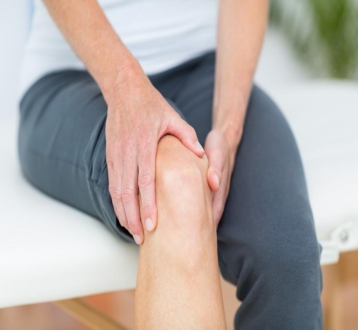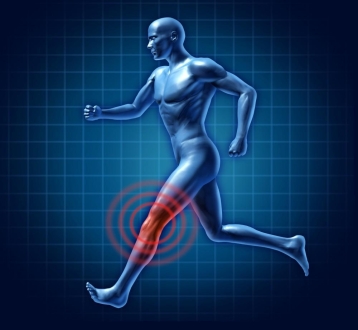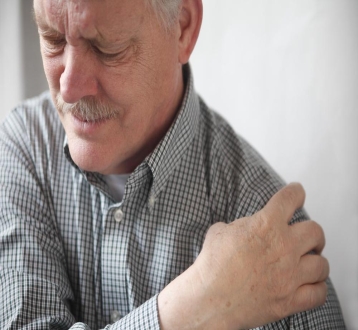
Do you feel pain in your shoulder when doing simple activities, such as getting dressed or combing your hair? Chances are you may have a rotator cuff tear. In this post, Otis R. Drew, MD, will walk you through the causes and symptoms of rotator cuff tears and explain what you can do about them.
The rotator cuff is a group of muscles and tendons that help strengthen and stabilize your shoulder joint. They hold the head of your humerus (upper arm bone) in the shoulder socket, enabling you to turn and lift your arms. Injuries or damage to these tissues can cause discomfort, pain, and other complications.
Causes
In most cases, rotator cuff injuries originate from repetitive strain or wear and tear as you age. Regarding repetitive strain, many people get rotator cuff injuries playing sports that involve a lot of shoulder movements, such as tennis, swimming, baseball, and weightlifting.
Regarding the aging process, bony overgrowths, or bone spurs, might lead to tears in rotator cuff tendons. Furthermore, a decreasing supply of blood to the tendons can slow the healing process.
Symptoms
Symptoms of a rotator cuff injury can range from minor to chronic. Let’s take a look at three types of rotator cuff problems and the symptoms related to them:
1. Acute tear
The common symptom of acute rotator cuff tears, which usually go away after a period of time, include:
- Severe pain that originates from the upper area of your shoulder down toward the elbow
- Intense pain caused by muscle spasms and bleeding
- With big tears, an inability to move your arm much because of the loss of muscle power and significant pain
2. Chronic tear
Symptoms of chronic rotator cuff tears, which usually go on for a long period of time, include:
- Pain that worsens at night and can hinder sleep
- Progressive weakness with increasing pain
- Reduced ability to move your arm in certain directions
- Difficulty raising your arm above your shoulder
3. Rotator cuff tendinitis
Rotator cuff tendinitis is prevalent in women aged 35-50. Symptoms include:
- Deep ache on the upper area of your shoulder
- Tenderness around the affected area that may increase with time
- Pain that gradually worsens as you lift or rotate your arm
Diagnosis
To determine if you’re suffering from a rotator cuff injury, Dr. Drew will look at your injury history and perform a physical test on your affected shoulder. Dr. Drew will check your muscle strength and range of motion. He will also look at the movements that cause pain to your shoulder. Additionally, he may use the following tests:
- X-ray to see if the top bone of your arm is invading the rotator cuff space
- MRI to get detailed images of your shoulder
- Ultrasound to look at soft tissues in your shoulder, such as your muscles and tendons
TreatmentPopular treatments Dr. Drew offers include:
- Anti-inflammatory injections and medications to relieve pain and reduce inflammation
- Counseling on adjusting your activities so you can use your shoulder more comfortably and safely
- Physical therapy to improve mobility and strengthen your shoulder muscles
- Surgery to treat injured tissues or replace joints
To find out more about treating rotator cuff injuries or to learn ways to prevent them, book an appointment online or over the phone with Otis R. Drew, MD today.










